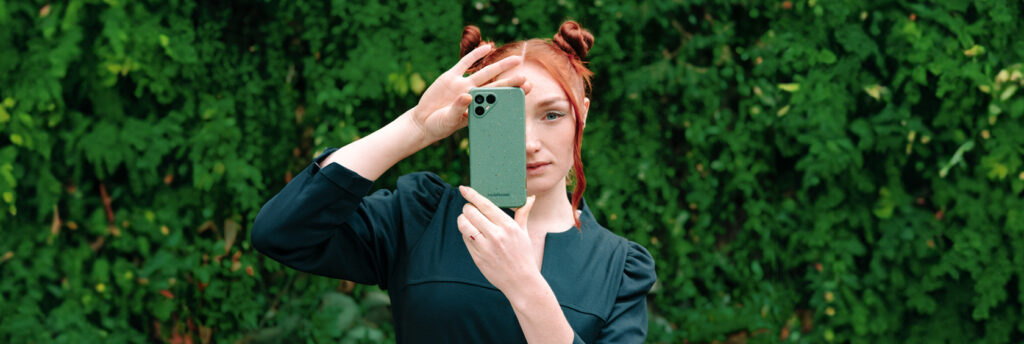
10 Tips For Better Smartphone Photography
It’s been two weeks since we re-introduced the Fairphone 4, now with a vastly improved camera experience. With faster shot-on-shot time, better low-light imaging and snappier autofocus, shooting with the Fairphone 4 is like working with a brand-new camera. Photos are richer, sharper, and more true to life with better contrast, while videos are buttery smooth and ultra-high def, thanks to improved video stabilization and 4K capabilities.
Having said that, sometimes, the best hardware in the world isn’t enough for the best results. We asked our in-house photography expert, Jan Köhler, to weigh in with some quick tips and tricks to help you take your photography game to the next level. In his words, some of it might seem super basic, but are still super useful. Others might seem a little more complicated, but are well worth the time taken to understand.
Clean your lens! We told you. Super basic, right? But it goes a long way in making sure your photographs look sharp… literally. You would be surprised how many people forget to do this and get blurry photos.
Need to shoot on-the-go? Did you know you can double-click the fingerprint sensor to open the camera app on Android 13? Perfect for that quick photo in a pinch.
Different modes for different folks: Poke around the software to see what sort of modes your smartphone camera comes with. For example, on the Fairphone 4, you have Super Night mode for solid low-light photography, with reduced noise and sharper details. You also have High Pixel mode, to make extreme close-ups really pop.
Stability is key. Another basic one. When filming a video, make sure image stabilization is switched on. Nobody likes jittery videos. Or blurry photographs for that matter. Bonus tip, if you can, use a tripod.
Set your settings. Check your settings to see what quality you are taking pictures in. Depending on the purpose, you can switch between different ratios, such as 9:16 or 4:3. You can also choose to shoot at different qualities. High-resolution photographs will always look and print better, but you might want to keep an eye on your file size.
Light-en up. Traditionally speaking, you should try to shoot with the light source behind the camera. This ensures your subjects are lit up properly. If you are facing the sun, your camera will have to choose between lighting your subject or your background. This usually results in your subject getting shrouded in darkness. Flip them around and shoot with the sun behind you. Bam! Now you have achieved peak photography. Of course, always feel free to experiment if you are going for something more artsy.
Focus! Tap the screen to focus on your subject. This often also helps correct the exposure of the photo, and helps your camera balance the image better, based on what you wish to highlight.
Guides are good. Use the grid function. This will help with not only leveling your images (aka straightening the horizon), but also with composition. Composition is key. It’s the reason why Da Vinci’s paintings are so enchanting. Try splitting the frame down the middle. Or work out a Y shape within your frame. Look up the golden ratio. Something I always try to do is place the eye of the subject where the two lines cross on the top right.
Auto is good, pro is better. The default settings on your camera app are already geared to give you great photographs. But dig deep into pro mode, and you can unlock a whole new level when it comes to your photography. Don’t be scared of going pro. Both the Fairphone 4 and 5 offers a live preview of the settings you are playing with. Adjust them until the image looks good to you. ISO controls the brightness, but it’s usually better to keep your ISO as low as possible. The higher your ISO, the more noise you will see in your image. Shutter speed (S) controls how fast your image is taken. The slower the shutter speed, the more the camera captures light. While this is good for lower light situations, keep in mind that it also introduces motion blur for moving subjects. EV dictates your exposure, which can help make your image brighter or darker – dialing down the EV can be a very powerful tool for moody shots with deep shadows and vivid colors in scenes with bright light and a lot of contrast. WB stands for white balance, which allows you to control the tone of your images, ranging from warm yellows to cold blues. Play around the settings until the image looks good to you.
Practice makes perfect. Back in the day of film photography, you had to be extremely careful of what you shoot, when you shoot, how you shoot. With mobile photography, one doesn’t have to be so cautious anymore. So experiment, fiddle around with the settings, play with the numbers, and see what works best for you. The more you practice, the more comfortable you get with your camera. At the end of the day, photography is very subjective. Don’t be afraid to show the world what looks good to you.
Share this post
The post you are currently reading is an AMP HTML document; an optimized version for mobile usage to increase loading speed and decrease data usage. To see our full website you can visit our own mobile version of this post.